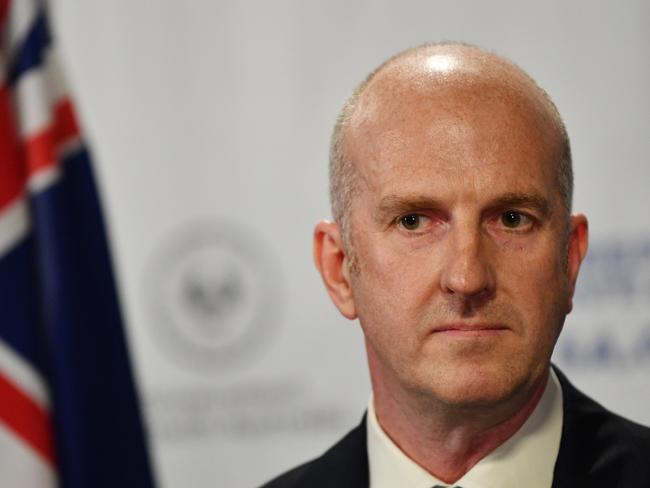Coronavirus: Transition Committee’s confidential fears driving our COVID-19 bans
Authorities feared a deluge of pleas for exemptions and the rise of black market nightclubs when they hit SA’s emergency stop button, confidential minutes show.
Coronavirus
Don't miss out on the headlines from Coronavirus. Followed categories will be added to My News.
Fears of black-market nightclubs and opening a floodgate of sport exemption requests if AFL games returned too early were among secret topics debated by the state’s powerful COVID-19 committee.
Confidential Transition Committee meeting minutes, obtained under Freedom of Information, provide the first insight into how our most senior public servants grappled with easing coronavirus restrictions.
The papers, which covered its first meeting on April 28 through to June 12, laid bare delicate discussions as authorities balanced public health concerns with rebooting the economy.
First called the Restoration Committee, members include state COVID co-ordinator Police Commissioner Grant Stevens, chief public health officer Nicola Spurrier and Department of Premier and Cabinet boss Jim McDowell.
Bureaucrats, who met biweekly at the pandemic’s height but now meet on Tuesdays, are under mounting pressure to further relax hospitality bans, such as standing up drinking and border rules.
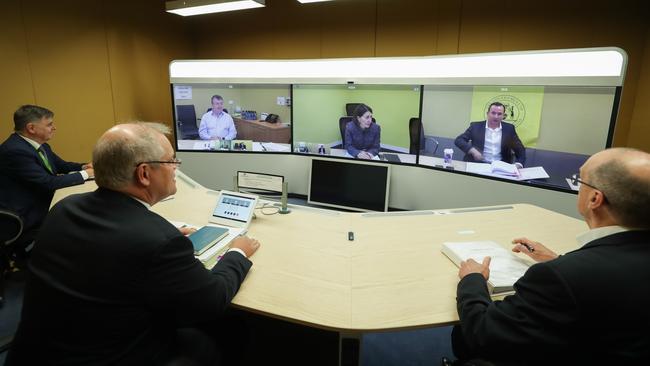
The documents, released to Labor, disclosed the state’s top cop’s fears that crackdowns risked “sending restricted activities like nightclubs into less controlled underground/black market environments”.
“The Commissioner noted a risk that continuing to restrict some activities may result in illegal, unregulated activity,” minutes from June 2 state.
A police spokesman said there was no evidence “this type of activity is occurring” but officers monitored during compliance checks.
While officials refused to release various AFL-related documents, minutes from May show quarantine hubs were declined because of “limited economic benefits beyond public confidence”.
“(Officials) did not consider these to outweigh the public health concerns,” the papers state. The committee also considered whether the granting of AFL exemptions “would give rise to further requests” from other sports before deciding on a “consistent approach”.
“(It) considered the effect of granting highly visible exemptions on general community compliance,” the papers state.
AFL returned with Showdown 48 at Adelaide Oval on June 13 after the committee allowed limited crowds but rejected calls to ease hotel bans.
As confidence grew in late May and early June, officials discussed a “balance between allowing more activity” and boosting global and national economies by easing border and quarantine restrictions.
“South Australia cannot remain closed forever, which means we must balance that with retaining restrictions that would limit the spread of COVID,” it concluded on May 25. June 2 minutes say boosting “public confidence is necessary to economic recovery and … while some businesses were open consumers and investors remained nervous”.
Officials backed Mr Stevens’ bid to exempt a Black Lives Matter rally in Victoria Square amid fears of “civil unrest”.
He told a June meeting he wanted to “avoid (a) perception that police were stifling a right to protest police actions”.
More than 6000 anti-racism protesters converged on June 6 for one of the state’s biggest rallies in decades.
What was going on behind the scenes
THE DOCUMENTS SHOW …
* RESEARCH was commissioned on May 2 to test “public attitudes” on important bans while “testing appetite about timing of each tranche”;
* SOUTH Australia’s “greatest risk is from imported cases”, Professor Nicola Spurrier warned in June as she raised “ongoing concern” about international travellers “not being sent into quarantine” at their port of arrival;
* THE state had the country’s best testing rates in April;
* CASUAL staff working while sick was an “issue” in June;
* LEGAL advice from the top government lawyer, Crown Solicitor Mike Wait SC, warned of a need for a “robust, defensible” case for interstate travel crackdown;
* POLICE concerns of “reduced public support” for emergency laws if unnecessarily extended;
* SEVERAL organisations including councils had excess bans or closures in May such as on outdoor playgrounds.
Our top COVID officials
Transition Committee members
State COVID Coordinator - Police Commissioner (chair): Grant Stevens
Chief public health officer: Professor Nicola Spurrier
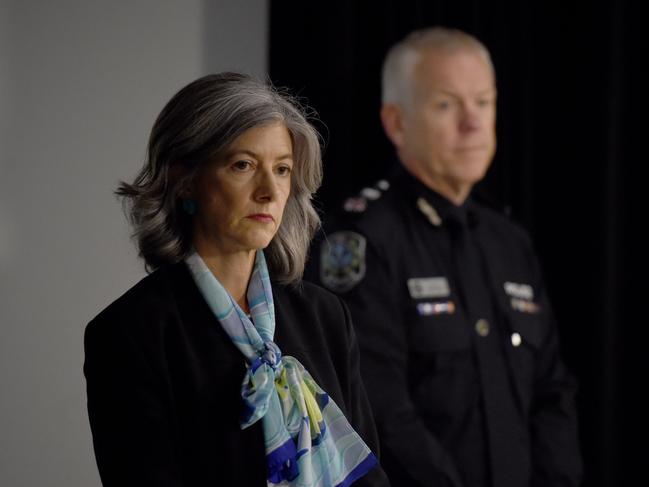
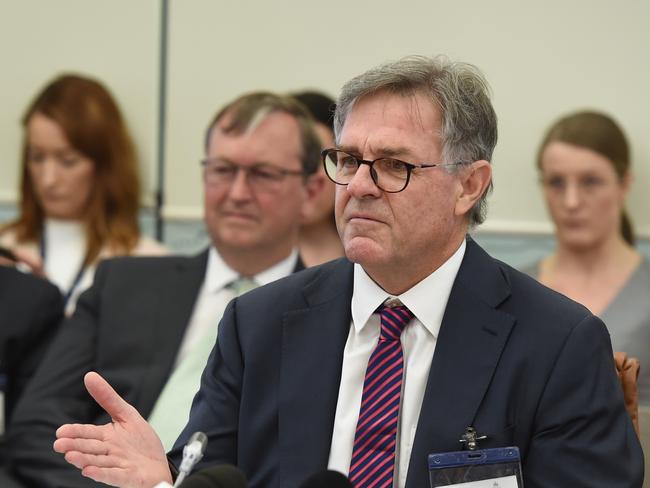
Chief executive, Department of Health and Wellbeing: Dr Chris McGowan
Chief executive, Department of Premier and Cabinet (who also chairs): Jim McDowell
Chief executive, Department of Treasury and Finance: David Reynolds
Chief executive, Department of Trade and Investment: Leonie Muldoon
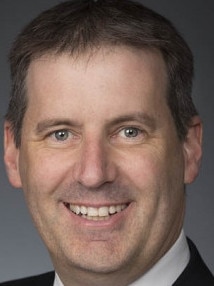
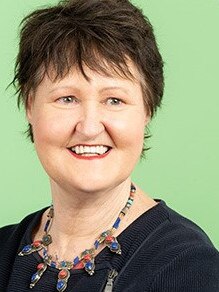
Secretariat: Alison Lloydd-Wright, DPC
Other ‘guests’ have included:
Deputy chief public health officer Dr Mike Cusack
Deputy chief public health officer, Dr Chris Lease
Crown Solicitor Mike Wait SC
Assistant Police Commissioner Noel Bamford
Executive Director, Communications, Department for Health and Wellbeing Jon Logie
Chief Executive, Performance and Reform, Department of the Premier and Cabinet Mark Duffy
Chief data officer, Department of the Premier and Cabinet Peter Worthington-Eyre.
Source: Transition Commitee minutes
